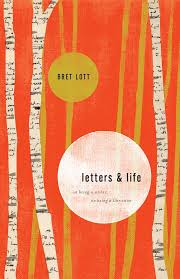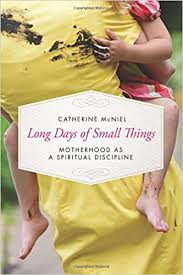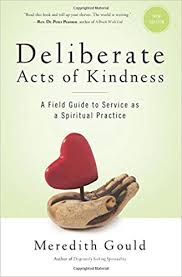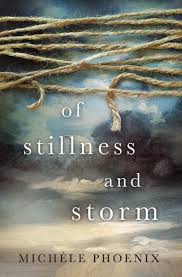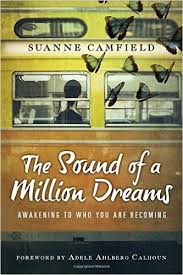In the novella-length essay that closes Letters and Life: On Being A Writer, On Being A Christian (Crossway, 2012), author Bret Lott took me back to the day my mom died, and the shadowed valley of days that came after that. The emotional landscape of his relationship with his dad throughout his life was quite different than mine was with my mom, save this: Before he realized his father’s life was nearing an end, while everyone around him was planning for rehab and recovery for him, his dad said, “I know I’ve done wrong things, but I know I’ve been forgiven.” The unexpected words signified a shift. My mom relinquished a lifetime of hurt, anger and fight in a prayed cluster of words similar to Lott’s father’s single sentence in the days before she died.
Words, Letters and Life reminds us, have the power to can set us free. Or imprison us, wound us, limit us, and lie to us. They fail and flummox us, and we fail each other and God as a result.
Lott has spent his life wrangling words. He is a gifted writer, formed and informed by his faith, but mostly plying his trade mostly outside of the Christian publishing world. Letters and Life captures him at midlife, his craft beautifully honed and applied to the task of making meaning out what has come before this point of his life. The first section of the book, Letters, contains a set of 5 essays grouped around the theme of writing. (Three of the five have been previously published in literary journals.) Each offers a completely different glimpse into the way his faith has been integrated into his writing life, and his writing life shapes his spiritual growth like a pair of built-in pruning shears. In his essay entitled On Precision, he tackles the transcendence of God breaking into the question of whether this writing life matters, or even make sense, with words like this:
To write precisely – and perhaps here is the only how-to you are going to get out of me – you must be there. You must remember you are not writing about this moment, you are are not putting in words to substitute for the experience; you are there. And while there, you are paying attention; you are at once that cool mathematician taking in the factors available, inserting variables you don’t yet know the value of, and working through them to their answer, all while being inside the story you are telling, that is, all while being the equation itself…
Precision calls for patience, it calls for searching; it calls for striving; it calls for letting yourself trip over right there in the path before you.
Being present – or not – is the theme of the final and longest section of the book, that nearly 10o-page essay entitled “At Some Point in the Future, What Has Not Happened Will Be in the Past”. This single essay comprises the Life section of the book, an somewhat-arbitrary division that isn’t entirely accurate. The entire book is about Letters, and the entire book is about Life.
In that final essay, which is just a hair short of being long enough to be a book unto itself, Lott strings together a series of stories that invite readers to feel the texture of his life, his relationships with his family, and what it means to him to have a life as a word-worker. This meaning is brought into focus by loss, and the cadence of his recounting of that loss reminded me of the way the dormant seeds of grief are often buried in the first half of our lives. Three little words, used imprecisely on one of his students’ papers, brought them to life for Lott. In turn, he brings life to his readers.
Which is what words are meant to do for all of us.
*I received a comp copy of this book from the publisher, but the price tag did not affect my review in any way.

